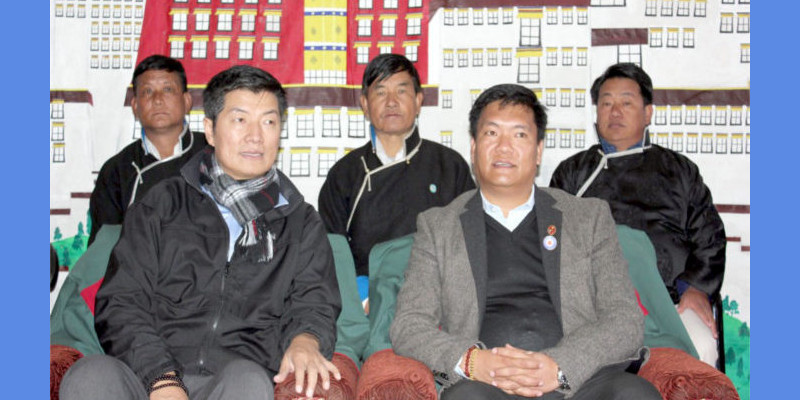NGO questions Arunachal government’s Tibetan rehabilitation policy adoption according to a report following the state government’s decision to extend the central government’s Tibetan rehabilitation policy formulated in 2014 to the state. The All Arunachal Pradesh Students’ Union (AAPSU) president issued a statement asking the state government to revoke the decision.
“All Arunachal Pradesh Students’ Union (AAPSU) and NEFA Indigenous Human Rights Organisation (NIHRO) have resented the State Government’s decision to adopt the Tibetan Rehabilitation Policy Act 2014 in the State and called for revoking it.” said the report in the Assam Tribune.
“I am happy to inform you that in the cabinet meeting convened by me on 12 August 2017, I along with my colleagues decided to adopt and extend the Tibetan rehabilitation policy 2014 in the state of Arunachal Pradesh,” Arunchal Pradesh chief minister Shri. Pema Khandu announced last week.
“As you are aware, Arunachal Pradesh has the fourth largest number of Tibetans in India. We have four Tibetan settlements Tezu, Miao, Tuting and Tenzingang. Therefore, in order to provide better opportunities to Tibetan youths residing in Arunachal Pradesh, my cabinet resolved to implement the Tibetan Rehabilitation Policy 2014 as framed by the union Government of India,” the chief minister added.
Policy guideline makes a clear policy statement that Tibetans may be allowed to undertake any economic activity and to that extent, relevant papers/trade license/permit may be issued to them. The policy also says that Tibetan Refugees may also be permitted to pursue/take jobs in any field for which they are professionally qualified. These could be fields like nursing, teaching, Chartered Accountancy, medicine, engineering etc.
“Though States like Himachal Pradesh and Uttarakhand did not oppose the settlement of Tibetan refugees in their respective States and went ahead with the policy, the matter is different in the case of Arunachal Pradesh,” AAPSU president Hawa Bagang said in a statement here on Wednesday claiming that the decision has negative implications for the indigenous people of the state.







Leave a Reply